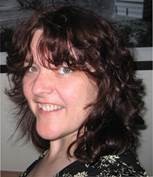Authored by Amy Latessa (OoR Advanced Research Computing team) and Mark Chalmers (UC Libraries – Science and Engineering Libraries)
On November 5th, UC Libraries with collaboration from the OoR Advanced Research Computing team, hosted the 6th annual UC Data Day. The theme of this year’s virtual event was Bias, Miscommunication, and Equity in Data and featured a Keynote by Heather Krause, two interactive panel sessions, and a weeklong virtual screening of the documentary film Coded Bias. This year’s event had 145 attendees and 29 views of the film.
Following the opening remarks of Xuemao Wang, Vice Provost for Digital Scholarship and Dean and University Librarian of UC Libraries, Data Day commenced with the keynote by Heather Krause, PStat, and Founder of We All Count. Heather challenged the traditional notion of data’s objectivity, reminding attendees that researchers must make choices and these choices are not objective. Heather also walked participants through several examples of research questions and demonstrated how the questions could be better designed with equity in mind and the onus of change on systems. She emphasized to participants that there is no “silver bullet” against bias, prejudice, and injustice, and we all must remain vigilant and consider who’s lived experiences are being centered, even at the onset of a project such as when formulating a research question. Heather was engaging and took many thought-provoking questions from the audience. Continue reading



